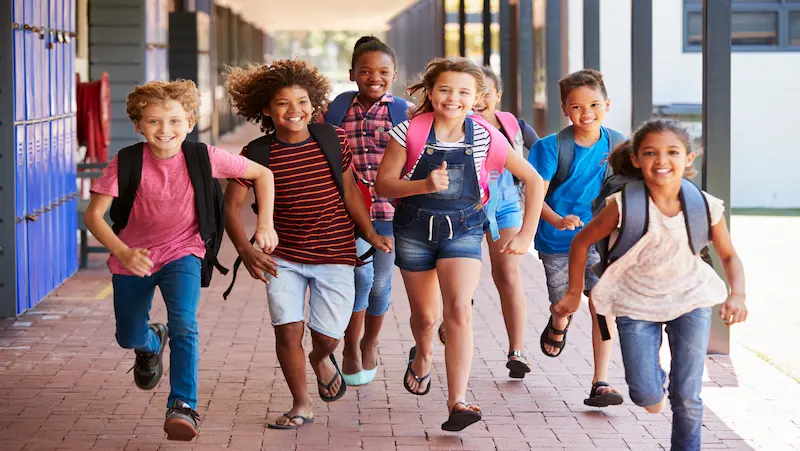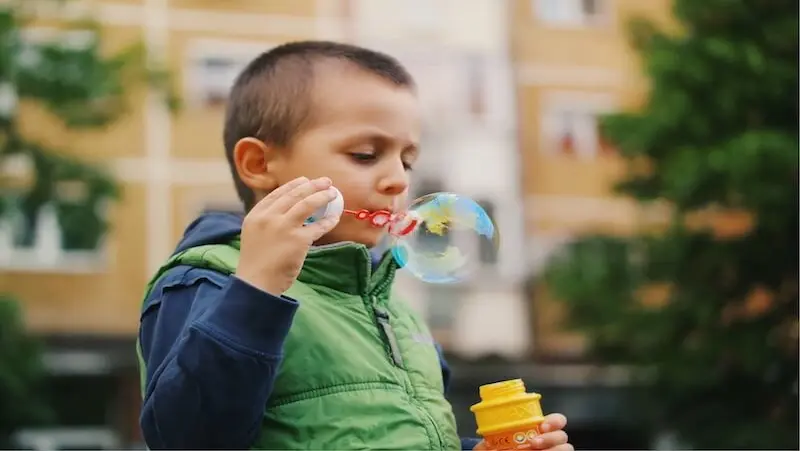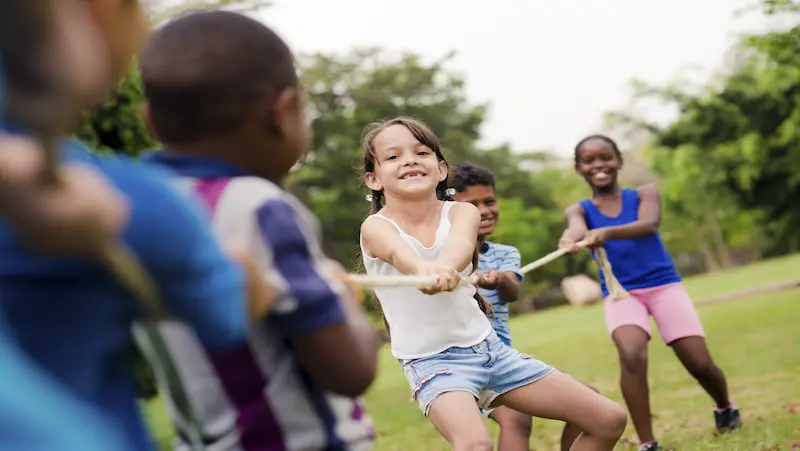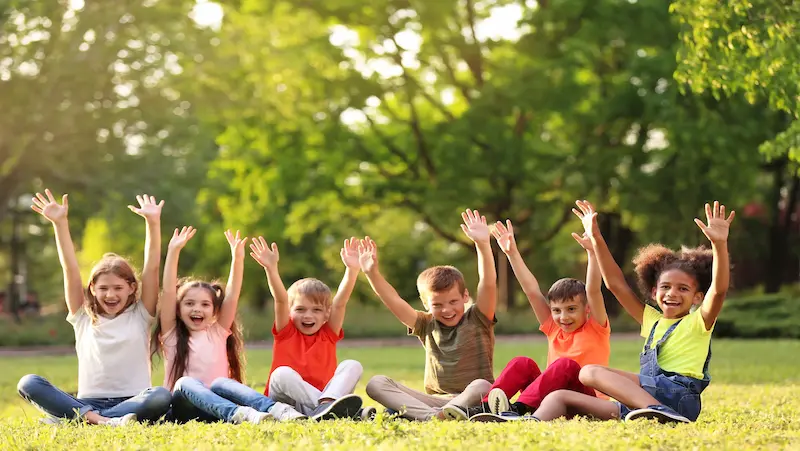In today’s fast-paced world, the role of education goes beyond the traditional classroom setting. After-school programs have emerged as a powerful tool to supplement formal education, offering a plethora of benefits to students, parents, and communities alike.
In this article, we will explore the significance of after-school programs and delve into various types of programs that cater to diverse interests and needs, ultimately fostering a brighter future for our youth.
Table of contents
- Introduction
- Understanding After-School Programs
- Academic Enrichment Programs
- Sports and Physical Activities
- Arts and Culture Programs
- Life Skills Development
- Technology and Digital Skills Programs
- Community Engagement and Volunteering
- Specialized Programs for Diverse Populations
- After-School Programs and Academic Success
- Conclusion
- Frequently Asked Questions

Introduction
After-school programs play a pivotal role in a student’s educational journey. They bridge the gap between school and home, ensuring a holistic approach to learning. These programs extend learning beyond school hours, providing a safe and supportive environment for students to explore their interests, develop essential skills, and nurture their overall growth.
With parents often being engaged in work or other responsibilities during the afternoon hours, after-school programs offer a safe and structured environment for students. These programs not only keep children engaged constructively but also contribute significantly to their personal development.
Benefits for Students, Parents, and Communities are:
1. Academic Benefits:
– Improved academic performance through homework assistance and subject-specific tutoring.
– Enhanced critical thinking and problem-solving skills.
– Better grasp of complex concepts through STEM programs and creative writing initiatives.
2. Social and Emotional Development:
– Increased self-confidence and self-esteem through participating in team sports or arts programs.
– Better communication and leadership skills fostered through specialized workshops.
– Opportunities to form lasting friendships and build a sense of belonging.
3. Health and Wellness:
– Physical fitness promoted through sports and health-oriented activities.
– Reduced risk of engaging in negative behaviors by staying occupied with positive activities.
– Improved mental well-being through creative and expressive arts programs.
4. Community Engagement:
– Stronger community ties forged through volunteering and service-oriented projects.
– Positive impact on the local community, fostering a sense of responsibility and empathy.
– Cultivating socially aware and responsible citizens through activism programs.

Understanding After-School Programs
After-school programs are organized activities designed to cater to the developmental and educational needs of students outside regular school hours. These programs may take place on school premises, community centers, or other designated locations. The primary purpose of after-school programs is to create a supportive and enriching environment that supplements the efforts of formal education.
In after-school programs, fun activities for kids can include arts and crafts, sports, outdoor games, science experiments, storytelling sessions, cooking classes, and interactive group projects. These engaging activities not only provide a break from regular academic routines but also promote social skills, creativity, teamwork, and a love for learning in a relaxed and enjoyable environment.
Types of After-School Programs
- Subject-Specific Tutoring and Mentoring: One-on-one or small group tutoring to aid students in challenging subjects.
- STEM Programs: Engaging activities centered around science, technology, engineering, and mathematics to spark interest in these fields. Introducing computer programming for kids at an early age reduces the gap in STEM education, equipping children with essential technical skills, fostering problem-solving abilities.
- Language Learning Programs: Immersive language classes to foster bilingualism and cultural appreciation.
- Creative Writing and Literary Programs: Nurturing creativity and storytelling abilities through writing workshops and book clubs.
Academic Enrichment Programs
- Subject-Specific Tutoring and Mentoring
Academic enrichment programs focusing on subject-specific tutoring and mentoring can be immensely beneficial for students struggling with particular subjects. One-on-one attention or small group sessions provide an opportunity to address individual learning needs, resulting in improved academic performance and increased confidence.
- STEM (Science, Technology, Engineering, and Mathematics) Programs
STEM programs aim to cultivate an interest in science, technology, engineering, and mathematics among students. Through hands-on experiments, projects, and interactive sessions, these programs make learning fun and exciting. By fostering curiosity and problem-solving skills, students are better equipped to pursue careers in STEM-related fields.
- Language Learning Programs
Language learning programs offer students the chance to explore new languages and cultures. By immersing themselves in the language through interactive activities, conversations, and cultural experiences, students can gain language proficiency and a deeper appreciation for diversity.
- Creative Writing and Literary Programs
Creative writing and literary programs encourage students to explore their imagination and creativity through writing. Workshops and book clubs not only improve writing skills but also promote critical thinking and analysis through literary discussions.

Sports and Physical Activities
- Team Sports Programs: Team sports programs foster teamwork, discipline, and leadership qualities in students. Whether it’s soccer, basketball, or volleyball, participating in team sports enhances social skills and provides valuable lessons in cooperation and sportsmanship.
- Individual Sports Programs: Individual sports programs cater to students who prefer sports that can be pursued independently. Activities such as swimming, tennis, or martial arts instill self-discipline, resilience, and goal-setting.
- Health and Fitness Programs: Health and fitness programs promote overall well-being by encouraging physical activity and healthy lifestyle choices. These programs may include yoga, dance, or aerobics classes that not only improve physical health but also reduce stress and anxiety.
Arts and Culture Programs
- Visual Arts Programs:
Visual arts programs offer students an outlet for self-expression and creativity. Through painting, drawing, and sculpture, students can explore their artistic talents and develop a deeper appreciation for various art forms.
- Performing Arts Programs:
Performing arts programs, such as theater and drama clubs, provide a platform for students to showcase their talents and boost their self-confidence through public performances.
Art for kids in after-school programs offers a wonderful platform for creative expression and skill development. Through various art forms like drawing, painting, sculpting, and crafts, children can unleash their imagination, boost self-confidence, and develop fine motor skills while discovering the joy of artistic exploration in a supportive and nurturing environment.
Visit art projects for kids.
- Music and Instrumental Programs:
Music and instrumental programs help students discover their musical talents and enhance their auditory skills. Learning to play musical instruments and participating in choirs or bands also promotes teamwork and collaboration.
Check out classical music for kids.
- Dance and Movement Programs:
Dance and movement programs not only promote physical fitness but also allow students to express emotions and ideas through dance forms like ballet, hip-hop, or contemporary dance.

Life Skills Development
- Leadership and Communication Skills Programs
Leadership and communication skills programs empower students to become effective leaders and confident communicators. These workshops teach essential skills such as public speaking, problem-solving, and decision-making.
- Financial Literacy and Entrepreneurship Programs
Financial literacy and entrepreneurship programs equip students with practical knowledge about managing money, budgeting, and investing. These skills are essential for their financial independence and success.
- Time Management and Organization Skills Programs
Time management and organization skills are crucial for students to balance their academic responsibilities and extracurricular activities effectively. Programs that teach time management and organization techniques help students become more efficient and productive.
Technology and Digital Skills Programs
In today’s digital age, coding and programming skills are highly sought after. Coding programs introduce students to computer programming languages, fostering creativity and problem-solving abilities.
Digital literacy programs educate students about responsible internet usage, online safety, and the potential risks associated with the digital world. Coding for kids in after-school programs offers a valuable opportunity for young learners to develop essential digital skills. Through interactive and fun coding activities, children not only learn to program but also enhance their problem-solving abilities, logical thinking, and creativity, preparing them for a tech-savvy future and potential careers in the digital world.
Robotics and engineering programs offer hands-on experiences with building and programming robots, sparking interest in technology and engineering careers.
Check out robotics for kids.

Community Engagement and Volunteering
Engaging in community-based activities for kids and volunteering through after school programs offers valuable life experiences. It helps them develop empathy, social responsibility, and teamwork while fostering a sense of belonging and making a positive impact in their communities. These activities provide a well-rounded education, nurturing both personal growth and a strong sense of civic duty in young minds.
- Community Service Programs: Community service programs encourage students to give back to their communities through volunteering and service-oriented projects. These experiences cultivate empathy and a sense of social responsibility.
- Social Awareness and Activism Programs: Social awareness and activism programs expose students to various social issues, encouraging them to become advocates for positive change.
- Environmental Conservation Programs: Environmental conservation programs raise awareness about environmental issues and empower students to take actions to protect the planet.
Specialized Programs for Diverse Populations
- Programs for Students with Disabilities: After-school programs designed for students with disabilities offer tailored support and accommodations to ensure inclusivity and a positive learning experience.
- Programs for At-Risk Youth: Programs for at-risk youth provide mentorship and resources to help them overcome challenges and stay on the path to success.
- Programs for English Language Learners: After-school programs for English Language Learners focus on language acquisition and cultural integration, providing additional support outside the regular classroom.
- Programs for Gifted and Talented Students: Specialized programs for gifted and talented students challenge them academically and foster their unique talents and interests.
After-School Programs and Academic Success
After-school programs contribute to improved academic performance by providing additional academic support and opportunities for practice and reinforcement of concepts learned in school. After school programs that focus on drawing for kids provide a creative outlet, fostering artistic expression and imagination while promoting skill development and a love for art.
After-school programs can play a vital role in narrowing the achievement gap between students from different socioeconomic backgrounds, providing equal access to enrichment opportunities.
Through engaging and interactive activities, after-school programs nurture critical thinking and problem-solving skills, preparing students for future challenges.
Conclusion
After-school programs are much more than just a way to keep students occupied after the bell rings. They are powerful tools that nurture growth and empower students to become well-rounded individuals.
From academic enrichment and sports to arts, life skills, technology, and community engagement, these programs offer a diverse range of opportunities for students to explore their interests and passions.
As we continue to recognize the significance of after-school programs in shaping the future of our youth, let us invest in and support these programs to create a generation of capable, confident, and responsible leaders.
Unlock a world of possibilities with BrightChamps, your partner in fostering holistic growth and education for children. From interactive resources to engaging activities, we provide a comprehensive platform that nurtures creativity, critical thinking, and character development. Join us in shaping the leaders of tomorrow, where learning becomes a joyful journey of exploration and empowerment.
To get your hands on more such educational and free resources on coding for kids, robotics courses for kids, game development, etc., do check out the Brightchamps Blog Page now!
Frequently Asked Questions
To find after-school programs in your area, check with local schools, community centers, or youth organizations. Online searches and local directories can also provide valuable information.
No, after-school programs are available for students of all ages, including middle school and high school students.
The typical duration of after-school programs varies but usually lasts for 1 to 3 hours, depending on the activities and organization.
Parents can get involved in after-school programs by volunteering, attending parent-teacher meetings, and supporting fundraising efforts.
Costs for after-school programs vary based on location and the type of activities offered. Some programs may offer scholarships or sliding scale fees to make them more accessible.
Yes, after-school programs prioritize safety and supervision. They often have qualified staff and adhere to strict safety protocols to ensure the well-being of students.


 We are an army of educators and passionate learners from BrightChamps family, committed to providing free learning resources to kids, parents & students.
We are an army of educators and passionate learners from BrightChamps family, committed to providing free learning resources to kids, parents & students.













